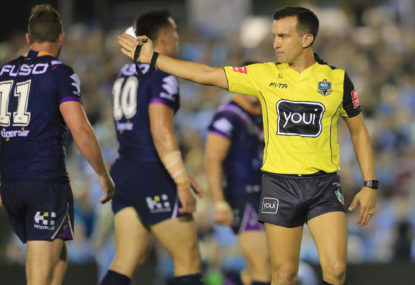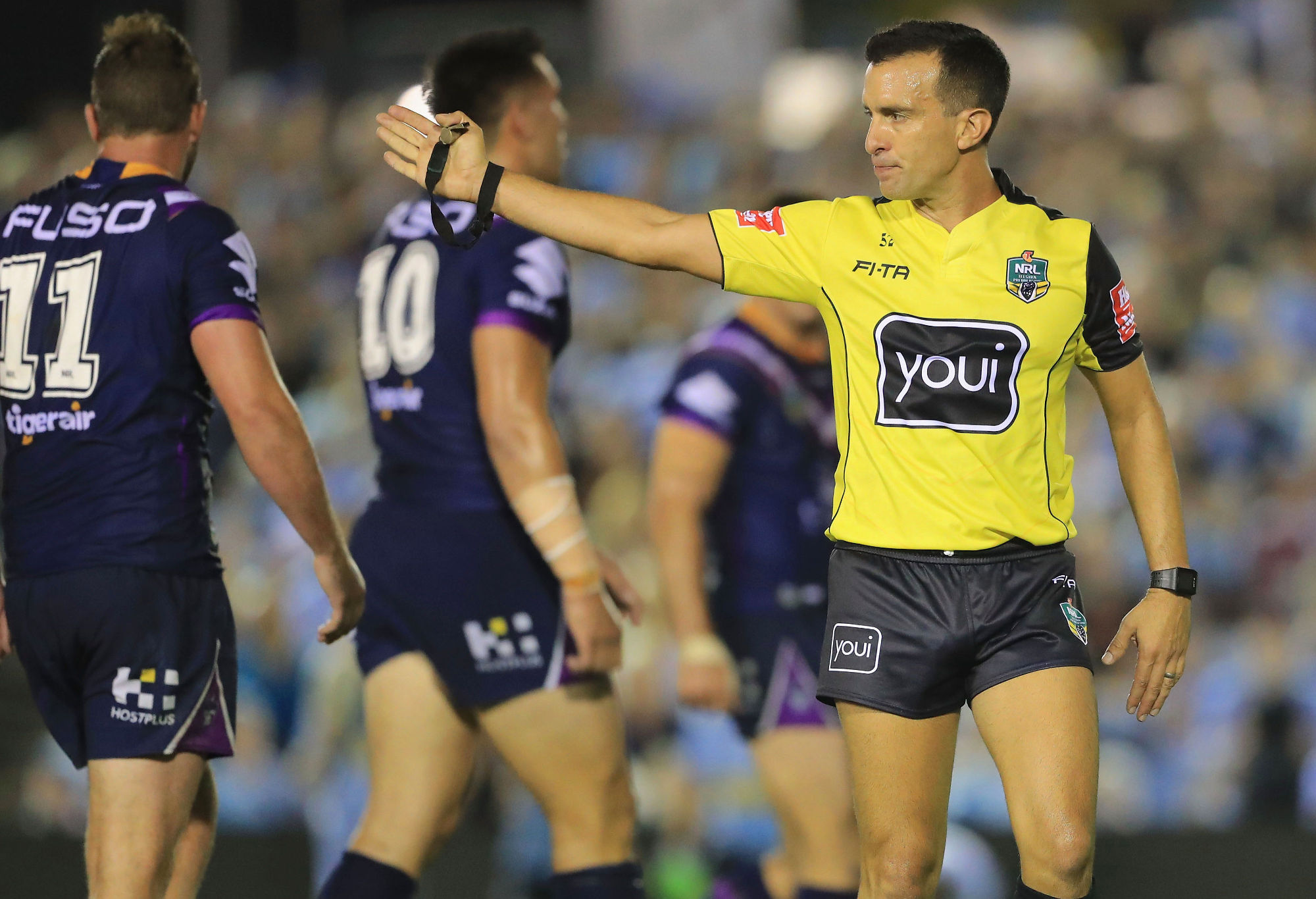Luke MacDonald
new author
Roar Rookie

I support the rule crackdown from the NRL. Let’s be honest: if they stop now, they will just look weak. It’s short-term pain for what will be long-term gain, but only if they stick at it.
The penny has dropped for some teams already, but we are still getting match-ups of teams that haven’t yet got the memo – North Queensland vs Gold Coast, for example (penalty count from match?).
Two teams void of confidence combined with discipline issues had the viewing community screaming in disgust because of the endless stoppages. It got me thinking: Does it have to be like this?
Other sports, even other rugby league competitions, have found a way to play advantage without a stoppage. Why can’t the NRL?
Union doesn’t do many things better than league, but the advantage rule is one of those unicorns. When there is a penalty infringement the referee simply indicates such to the players verbally and with a straight arm. The team in possession can then continue with advantage until the referee deems the advantage over.
AFL is clearly very different in structure to our sport, but they too have found a way to have continuous flow in their game. An AFL umpire blows the whistle and begins the arm movements to indicate the infringement. If the team receiving the free kick has the ball, they can take the advantage by simply playing on with any football movement they wish.

(Mark Evans/Getty Images)
One interesting point to note is that AFL players tend to instinctively know who infringed when the whistle blows and will often run into position before the umpire can even make the call.
The case study closest to home, however, is the UK Super League. Their process is very simple: if there is an infringement, the tackle count can be restarted with an arm movement and verbally by the referees.
This is the basis for what the NRL should look to implement. If combined with some of the better aspects of advantage rules mentioned above and there’s a framework for both punishing the infringing side, advantaging the attacking side will allow play to continue.
Here’s a theoretical example of how I’d see it working.
The Wests Tigers are 30 metres out from their own line on the first tackle. They are down 20-24 in the 2018 grand final against a tiring Warriors side.
There’s a break; its James Tedesco! Wait, wait. Sorry! The Roosters were knocked out in Week 1 of the finals. It’s Corey Thompson. He’s through and over halfway.
Now the 40. Roger Tuivasa-Sheck comes flying across in cover and takes him down 25 metres out from the line.
Thompson gets to his feet and plays the ball. Ken Maumalo has managed to get to marker and, seeing that his defensive line is shot, jumps out early and makes the tackle on Luke Brooks.
[latest_videos_strip category=”league” name=”League”]
Let’s pause.
This is where we need to change it up a little. Traditionally the whistle blows, the game stops and the attacking team misses a chance to take advantage of what they have rightfully gained: a field position victory combined with a broken, tired defensive line.
What if play continues at this point with the referee making the standard straight arm penalty signal but no whistle to indicate an infringement with advantage? Benji Marshall gets to dummy-half and now has an option he can pick the ball up and take a zero tackle fresh set of seven without giving the defence a chance to reset and take some rest.
If he wants to kick for touch or take a shot at goal, he can simply leave the ball on the ground and indicate to the referee he would like to do so with potentially a signal back.
Like in the AFL example above, the players instinctively know when an infringement occurs. You see it all the time in NRL – a player gets out of dummy-half and suspects the marker isn’t square, and he and all his teammates look at the referee with outstretched arms, yelling, “Not square!”.
Marshall will know Brooks got Maumalo. He’ll have it confirmed by the referee and then he, the player, not the referee, decides what’s best for his team with the grand final on the line.
We all want to see more footy and have fewer stoppages. Why don’t we give our referees the tools and the players the power to do that?
By the way, Benji picked it up, threw a 30-metre quad cut out and hit Malakai Watene-Zelezniak on the chest, who scored out wide. Esan Marsters then hit the upright and in from the touchline.
Absolute scenes.